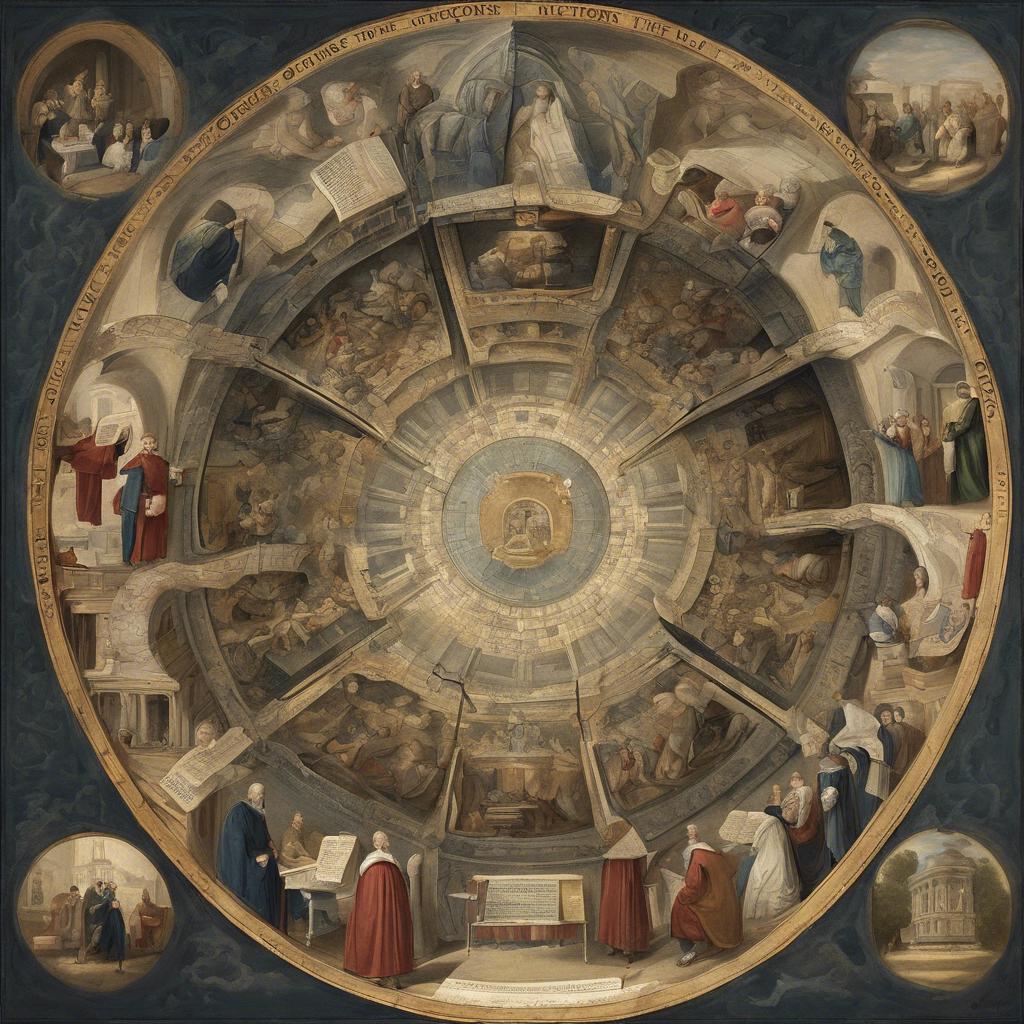In the annals of academia, the title of rector holds a longstanding tradition of prestige and authority. From its origins in ancient Rome to its evolution in modern educational institutions, the role of a rector has symbolized leadership and governance in the scholarly realm. Delving into the historical significance and nuanced meanings of the term “rector” sheds light on the enduring legacy of this esteemed position.
Step Into the World of Cheryl Bolen
Dive into the enchanting stories of love, intrigue, and elegance set in the Regency Era. Cheryl Bolen's novels offer timeless romance and captivating tales that will leave you wanting more.
Explore Cheryl Bolen's Books Now
Origins of the Title Rector and its Historical Significance
In medieval times, the title of Rector derived from the Latin word ”rector” which means ruler or leader. The term was initially used to refer to a person who had the authority to govern or oversee a specific area, such as a parish or university.
Throughout history, the title of Rector has held significant importance in various institutions, particularly in academic settings. Rectors were often responsible for the management and administration of universities, ensuring the smooth operation of the institution and representing its interests to the outside world.
Today, the title of Rector is still used in many universities and educational institutions around the world. While the role may have evolved over time, the historical significance of the title remains, symbolizing leadership, authority, and responsibility within the academic community.
Key Responsibilities and Duties of a Rector in Various Institutions
In the realm of academia, a rector is a figure of great importance and influence within an institution. Their duties and responsibilities vary depending on the type of institution they preside over, but there are some common themes that are generally applicable across the board.
- Leadership: A rector is expected to provide strong and visionary leadership to their institution, guiding its direction and ensuring its success in achieving its academic goals.
- Administration: Rectors are responsible for overseeing the administration of their institution, including managing budgets, allocating resources, and ensuring compliance with regulations.
- Community Engagement: Rectos play a key role in engaging with the wider community, fostering partnerships and collaborations that benefit both the institution and society at large.
| Type of Institution | Main Responsibilities |
|---|---|
| University | Setting academic vision, overseeing research, managing faculty |
| Technical College | Developing vocational programs, liaising with industry partners |
| Secondary School | Implementing curriculum, supporting student welfare |
Strategies for Effective Rector Leadership and Management
In medieval Europe, the role of a rector was crucial in overseeing the management and leadership of educational institutions such as universities. The term ”rector” actually comes from the Latin word meaning “ruler” or ”guide,” emphasizing the authority and guidance that these individuals provided in academia.
One key strategy for effective rector leadership and management was to establish a clear vision and mission for the institution. By setting goals and objectives, rectors could guide their staff and students towards a common purpose, fostering cohesion and collaboration within the university community.
Another important tactic employed by rectors was to prioritize communication and transparency. Keeping an open line of communication with faculty, staff, and students helped to build trust and ensure that everyone was on the same page. This approach created a sense of accountability and unity, which ultimately led to a more harmonious and successful academic environment.
The Evolving Role of Rectors in Modern Educational Settings
The role of rectors in modern educational settings has significantly evolved over the centuries. Originally, rectors were primarily responsible for overseeing the day-to-day operations of a university, including academic affairs and student discipline. However, in today’s educational landscape, rectors are expected to play a more strategic and visionary role in shaping the direction of their institutions.
One key aspect of the evolving role of rectors is their emphasis on building and maintaining strong relationships with stakeholders, including students, faculty, alumni, and the community at large. By fostering a sense of community and collaboration, rectors can create a positive learning environment that supports the academic and personal growth of all individuals involved.
Furthermore, modern rectors are increasingly focused on innovation and adaptation in response to rapidly changing educational trends and technologies. They must be able to anticipate future challenges and opportunities, and lead their institutions in embracing change and staying ahead of the curve. In this dynamic educational landscape, the role of rectors is more important than ever in ensuring the long-term success and relevance of their schools.
| Responsibility | Description |
| Academic Affairs | Overseeing curriculum development and academic programs. |
| Strategic Planning | Setting long-term goals and vision for the institution. |
| Community Engagement | Building relationships with stakeholders and fostering a sense of belonging. |
Wrapping Up
the role of rectors throughout history has been a pivotal one in shaping the course of academic institutions. Their leadership, guidance, and dedication to both scholarship and administration have been instrumental in fostering intellectual growth and innovation. Understanding the meaning and significance of rectors provides us with a deeper appreciation for the rich tapestry of academic history. As we continue to honor and uphold the traditions established by rectors of the past, we ensure a legacy of excellence for future generations to come.


